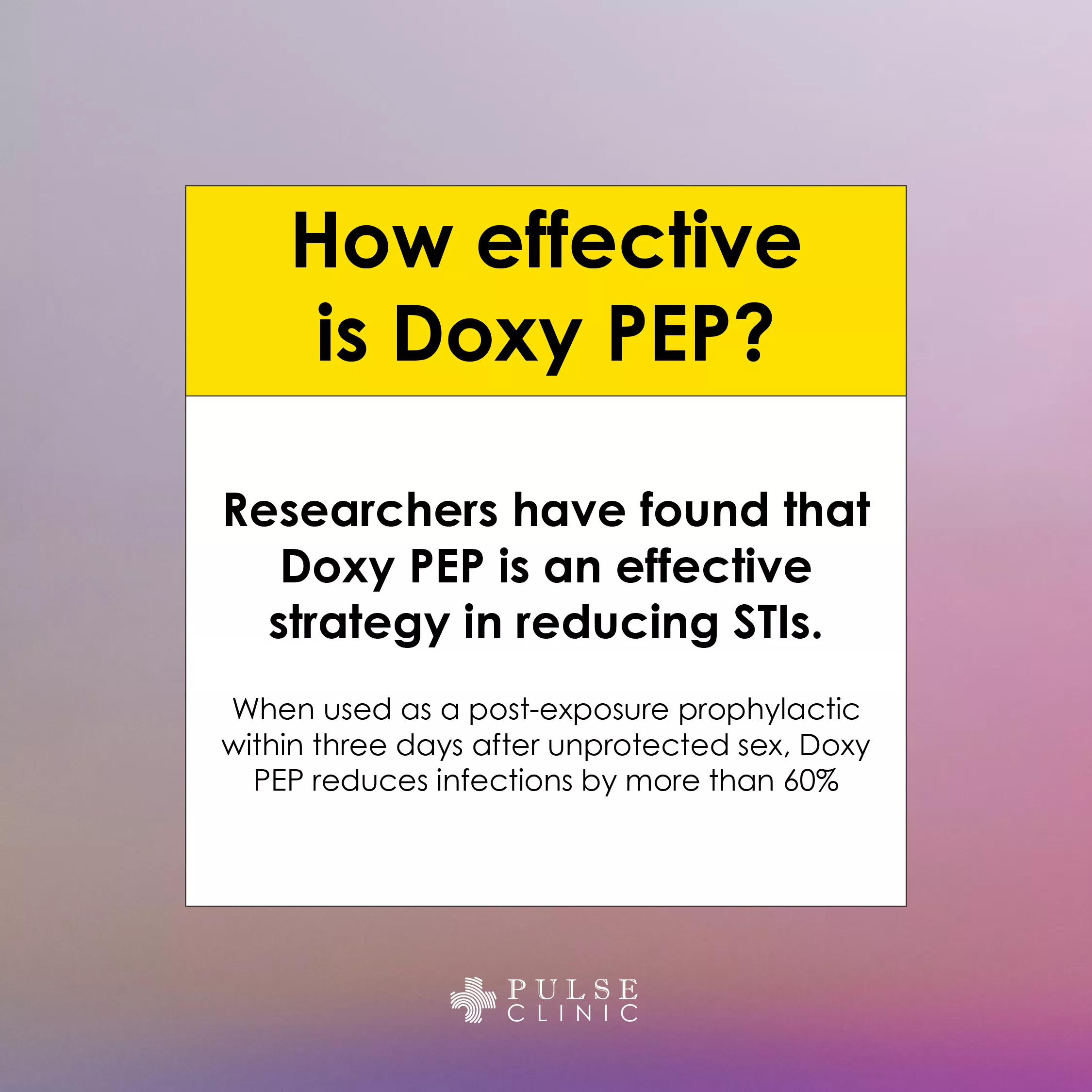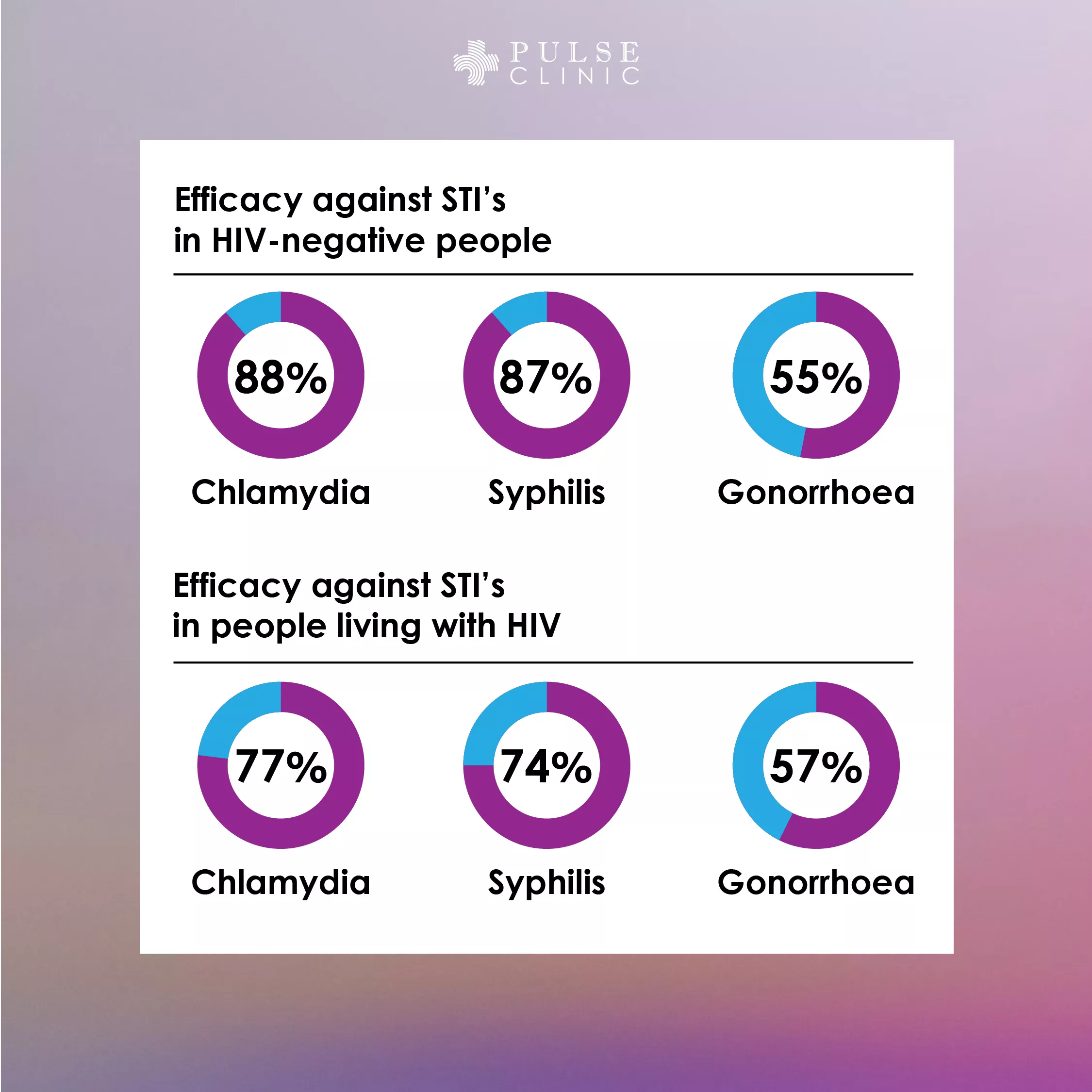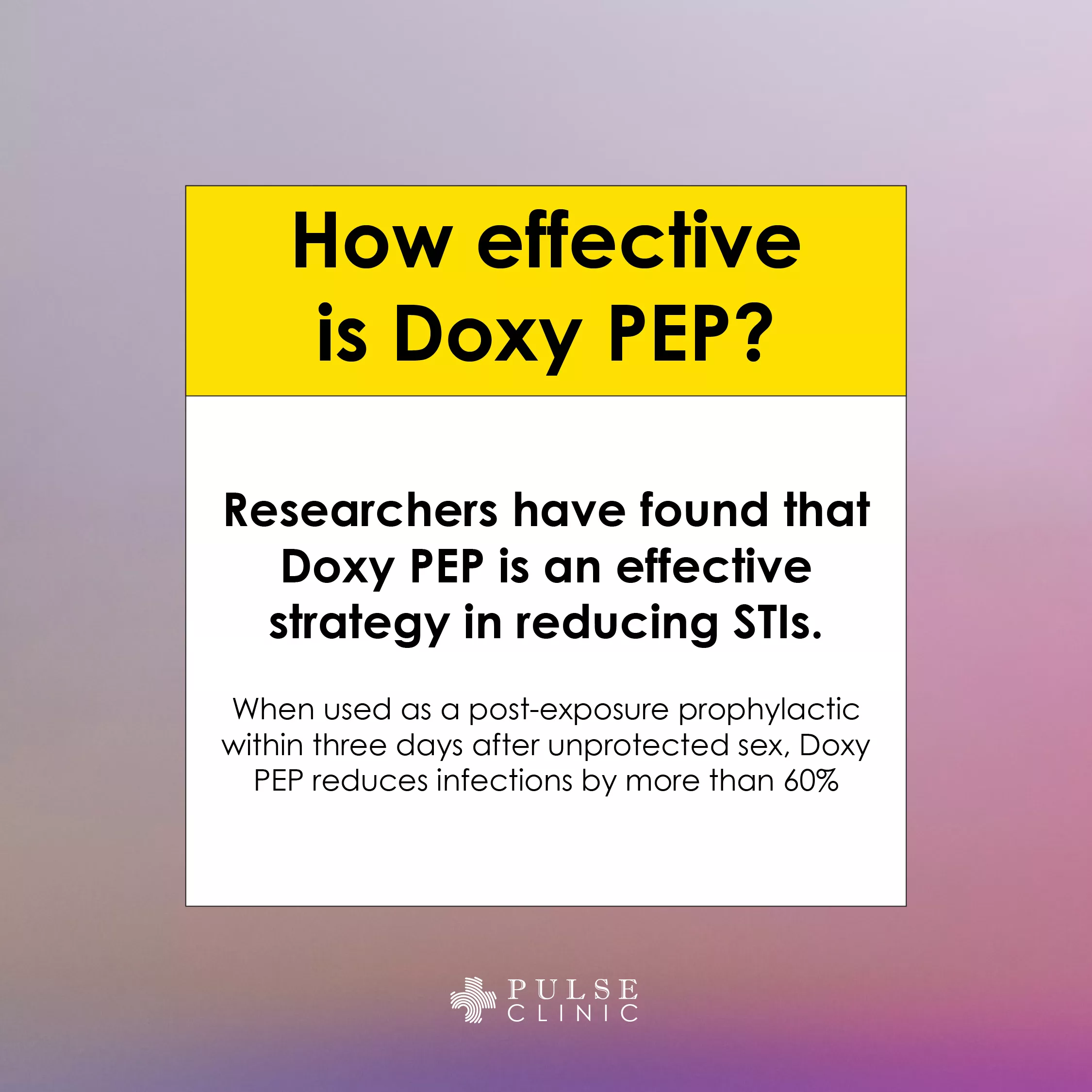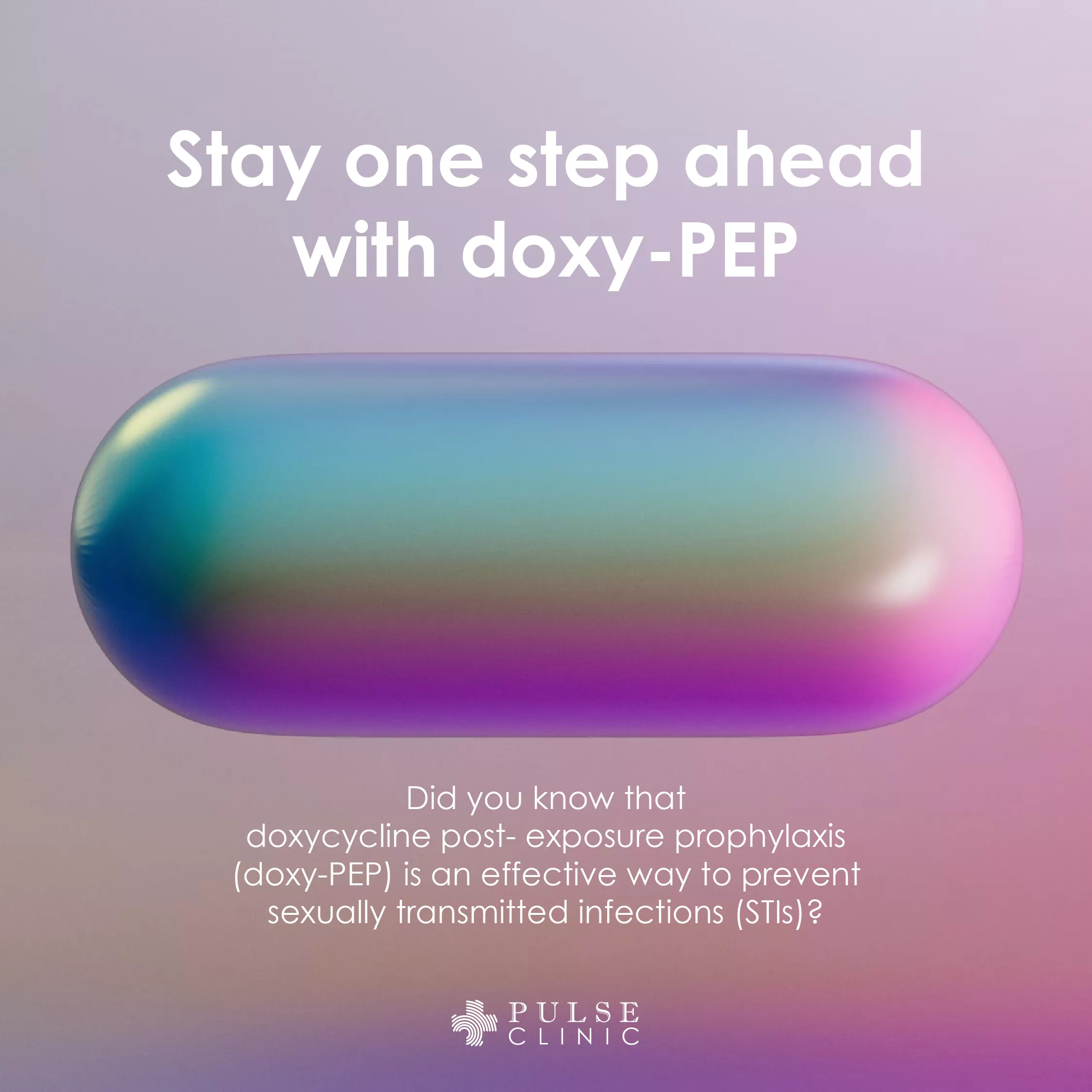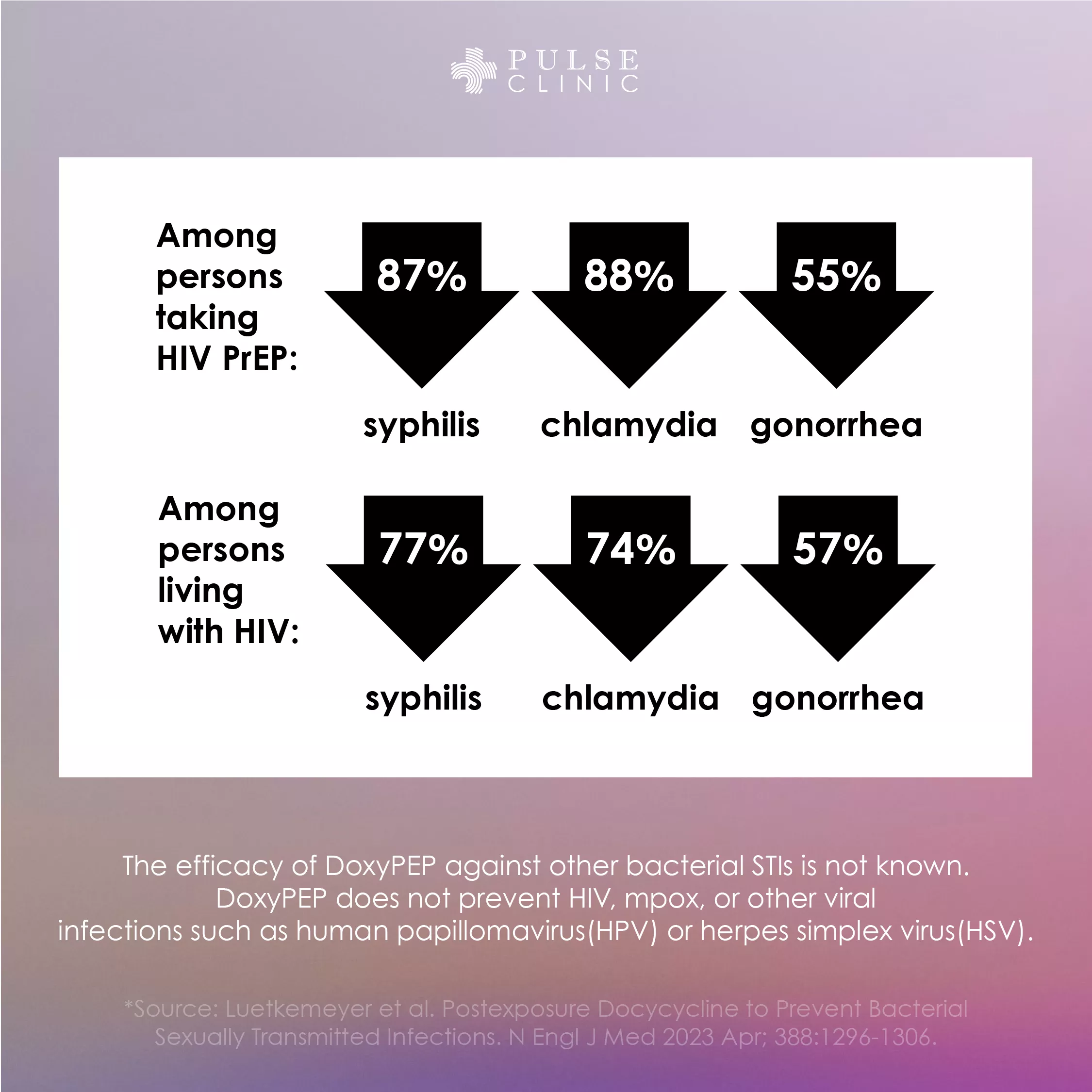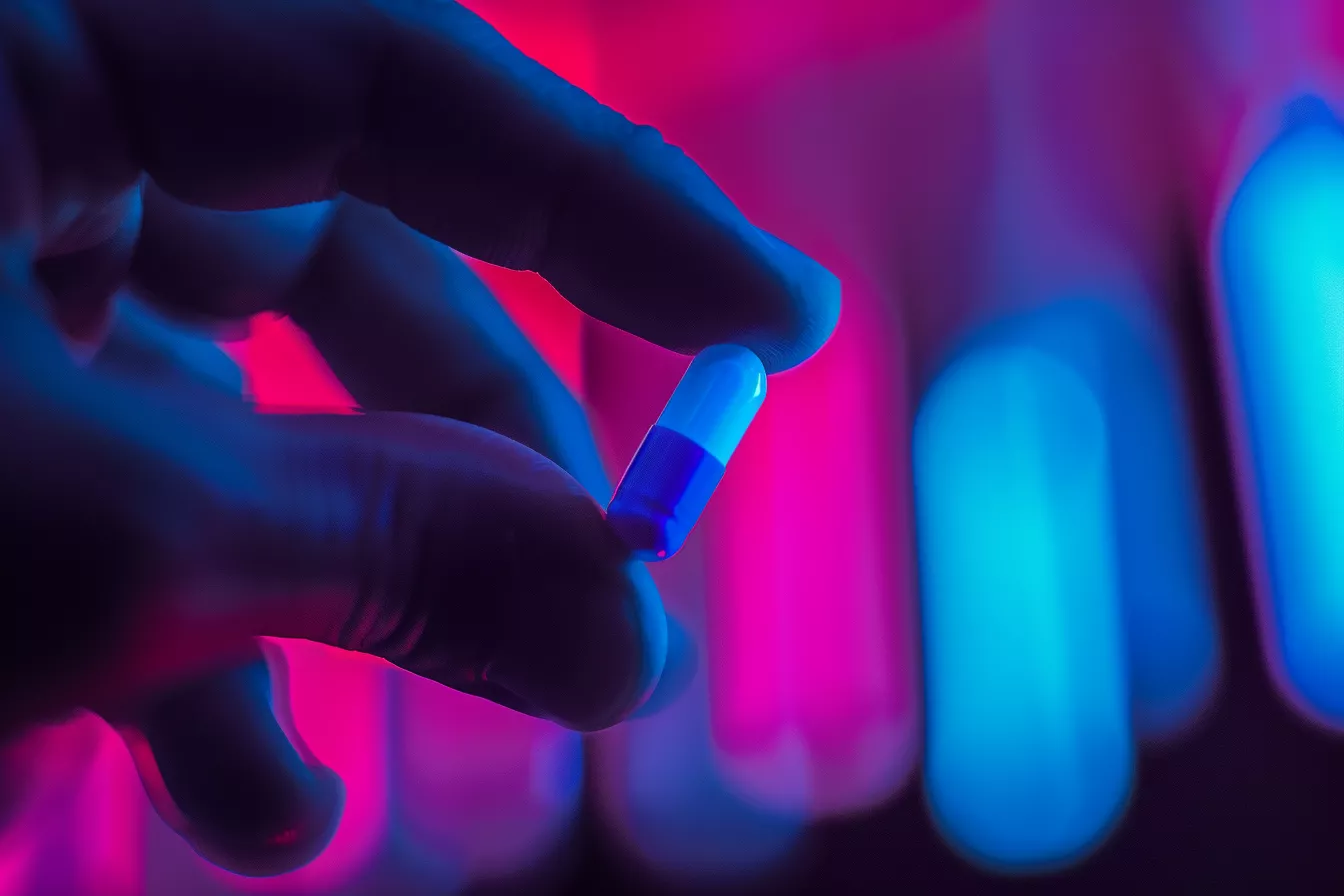Syphilis Is Back: Here's How DoxyPEP Could Help Reduce the Risk
2372
Syphilis is on the rise. New cases have reached a record high. DoxyPEP might be the key to helping us fight back. Here is how.

Syphilis Is Back: Here's How DoxyPEP Could Help Reduce the Risk
The number of new gonorrhea and syphilis cases is rising globally. Although our medicine for STI treatments and preventative care is better than ever, many people still cannot access these resources, especially among marginalized groups.
One of the most important steps to reduce STI transmission is regular testing and prompt treatment to lower the risk of infecting your sexual partners. You can also greatly reduce your chances of contracting STIs by using prevention methods like PrEP and DoxyPEP regularly. Stay proactive in protecting your sexual health!
Contact us at info.bkk@pulse-clinic.com or chat on your preferred platform:
![]() +66 65 237 1936
+66 65 237 1936  @PULSEClinic
@PULSEClinic ![]() PulseClinic
PulseClinic
New Syphilis Cases Hit Record High
We haven’t seen the number of new syphilis cases grow at this rate for over 70 years. This raises public health concerns, as more cases are also being found in newborns. Syphilis might be an infection that can be treated in adults when detected early, but it can be fatal when passed from parents to newborns, as their immune systems are not fully developed.
The incubation period for primary syphilis is 14 to 21 days. Symptoms of primary syphilis are: small, painless open sore or ulcer (called a chancre) on the genitals, mouth, skin, or rectum that heals by itself in 3 to 6 weeks. The Syphilis sore will disappear after that. The latent stage can last for years. Your symptoms may never come back. A person can remain infectious, and transmit the infection to others.
Did you know that PULSE Clinic (Thailand) has the most comprehensive STD test that tests for 28 pathogens that cause sexually transmitted infections (STIs). The PCR 28 STD testing can detect symptomatic and astomatic STIs.
You might think having syphilis is not a big deal because modern medicine can heal you quickly. However, if syphilis is not treated, it can harm the heart and brain, leading to blindness, deafness, and paralysis. Most STIs are also asymptomatic, meaning you’re unlikely to notice any symptoms, especially if you don’t get tested regularly.
The rise in new STI cases suggests growing numbers across all gender groups, unlike historical records where STIs were more prevalent in the gay community. A few factors contributing to this could be the increasing use of PrEP, leading to less condom use, and the popularity of online dating, making casual hookups easier.
Condom use was one of the main reasons STI cases dropped drastically in the past. However, individuals are not solely responsible for this; public health agencies also need to develop ways to educate more people about STI prevention. An unofficial survey from the Department of Disease Control in Thailand found that around 30% of people aged 15-24 have unprotected sex. STI cases in this age group are also more prevalent than in other groups, accounting for 36.9% of all cases in 2018. The survey also found that many people aged 15-24 have incorrect understandings about STIs and prevention methods. Providing comprehensive sex education for this group will likely reduce the number of cases, as proven in the past.
Add us on Line and stay in touch.
Other STIs Could Increase Your Risk of HIV
Though gonorrhea, chlamydia, and syphilis might be treatable with current medicine, untreated STIs could increase your risk of HIV. Many STIs can weaken the surfaces of our organs, making it easier for HIV to enter our systems. Syphilis is also known to cause sores around the area of infection, increasing the likelihood of HIV infection while having active syphilis. Having these two STIs unknowingly could put you at higher risk compared to those with no infections.
Knowing your status is an essential tool in planning your prevention methods based on your risks. It is advised to get tested regularly, depending on your sexual behavior. Some people might need to get tested more often than others, such as:
- People with multiple sexual partners
- People having unprotected sex
- Men who have sex with men
- Sex workers with multiple sexual partners
If you think you might fall into these groups or have risks of contracting STIs, we suggest you get a comprehensive test for common to uncommon infections transmitted through sex. Knowing more about your status will benefit your overall health, as untreated STIs could put your sexual partners at risk and lead to health complications.
DoxyPEP Might Be a Tool to Help Us Fight Back Against This Wave of STIs
DoxyPEP (doxycycline post-exposure prophylaxis) is a new STI prevention method developed to help reduce the risk of bacterial STIs, specifically syphilis, chlamydia, and gonorrhea. By taking the antibiotic doxycycline after sex, DoxyPEP could help reduce the risk by about two-thirds. DoxyPEP works especially well when used with other protection methods.
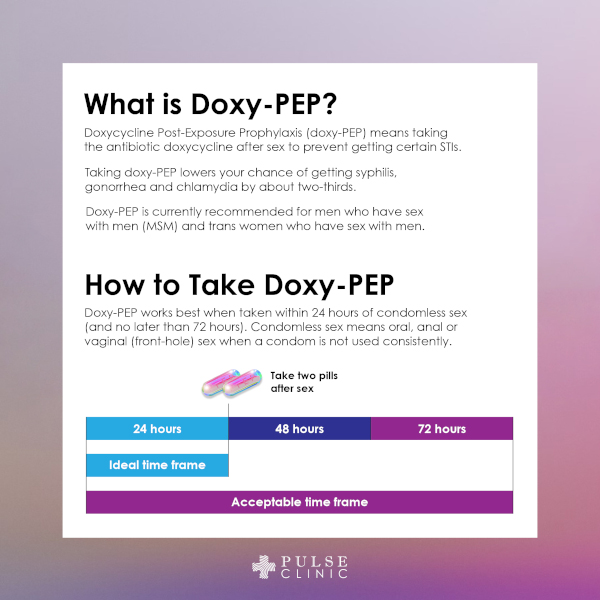
We were able to almost eliminate syphilis in the past, indicating a good potential to reverse the current trend. Prevention methods like using condoms have proven effective in reducing the number of cases, as they prevent the transmission of bacteria that cause STIs. More people practicing safe sex means fewer STIs transmitted. This means that preventative care doesn't only protect you from infection but also helps your partners reduce their risks.
DoxyPEP is proven to be an effective prevention method for bacterial STIs. It can be a good addition to your prevention routine alongside condoms and PrEP for HIV. Studies have found that DoxyPEP greatly reduces the risk of getting STIs, especially for men who have sex with men and trans women, as shown in the infographic below.
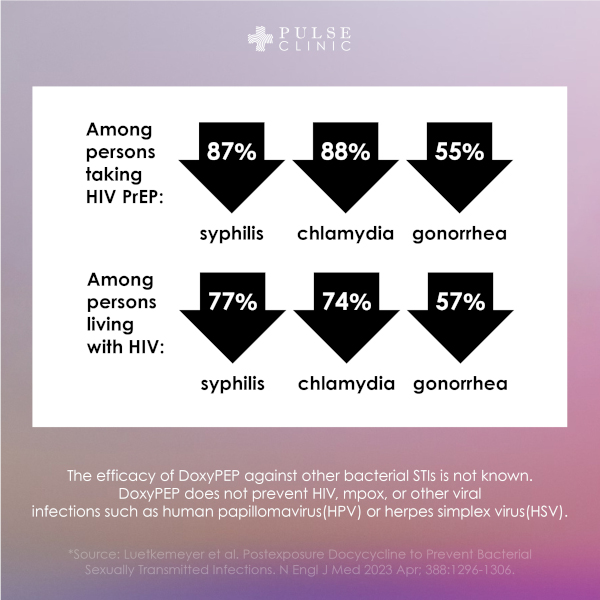
Not only is DoxyPEP a good way to help protect you from STIs, but it could also be a useful tool to greatly reduce the risk of complications in people living with HIV. As HIV can overwhelm your immune system, it puts you at higher risk of severe symptoms from other infections.
Although the current guidelines suggest that DoxyPEP might work best for men and trans women, a new study found that taking doxycycline daily can also help reduce the risk of bacterial STIs in women. Since the method of taking antibiotics in the original study didn't make the concentration around the vaginal area strong enough to fight off bacteria, this study suggested that with proper dose adjustments, we might be able to use DoxyPEP in women safely with fewer side effects.
However, using DoxyPEP alone might not be as effective in reducing the number of new cases. To get the full benefits of DoxyPEP, we suggest using other STI prevention methods alongside DoxyPEP, such as:
- Using condoms
- Using lube to reduce injuries
- Getting tested regularly
Reducing the number of STI cases is a community effort that requires help from everyone. Public health organizations need to inform people about the issues, and we all have to participate in practicing safe sex to reduce risks, not only for ourselves but also for our sexual partners. It is everyone's responsibility to make sex safer and more enjoyable for everyone.
Order Doxycyline for STI prevention online today!
For more information about the medication and ordering process, please contact our online pharmacy service at pulseliving@pulse-clinic.com or chat with us on your preferred platform.
Trust PULSE CLINIC to take care of your health like other 45000 people from over 130 countries. We provide discreet professional service with high privacy. Here to help, not to judge.
Loading...
Clinic Locations
Loading...


